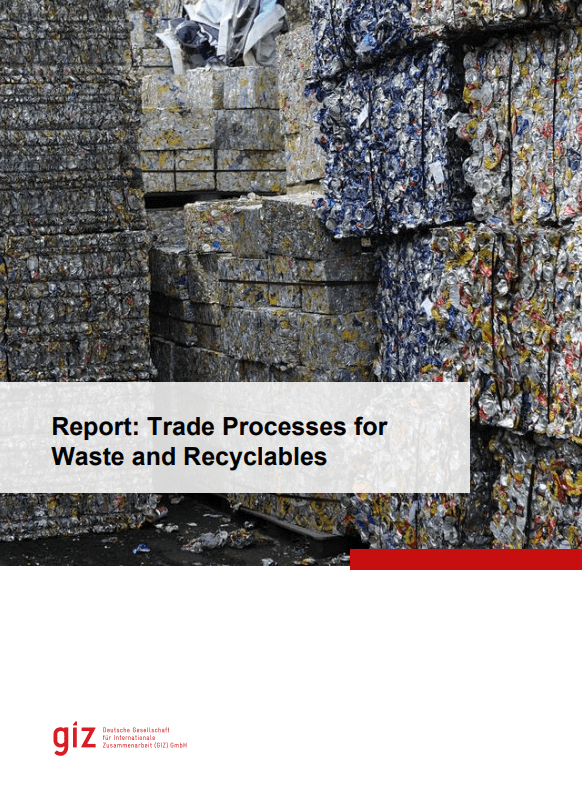
Members
Report: Trade processes for waste and recyclables – a capacity needs assessment
There is a strong need to improve the trade flows of used goods, recyclables and waste to increase environmental sustainability. Customs authorities have an important role to play. Therefore, Deutsche Gesellschaft für Internationale Zusammenarbeit (GIZ) GmbH commissioned an analysis on respective capacity building needs. The assessment focuses on one sector, plastics, and explores two country cases, Ghana and Tunisia.
Customs authorities in many low- and middle-income countries lack the capacities and incentives to control waste trade, to enforce rules to stop illicit trade, and to facilitate “the right kind of trade”. There are indications that more restrictive national policies, e.g., China banning imports of plastic waste, lead to more waste trade flows “going underground”. The World Customs Organisation, Interpol and others call for increased capacity building for customs authorities and cooperation among customs and environmental agencies in low- and middle-income countries.
Dumping of plastics waste, e-waste, chemicals and other waste heavily pollutes the environment, harms the health of entire communities and undermines their livelihoods. Environmental sustainability can only be achieved if recyclables can be traded more easily and help to make circular economy business models competitive. Expanding and speeding-up efforts in this regard is urgently needed.
The assessment was assigned to Trinomics in cooperation with the Africa Circular Economy Network. The task was to provide context on waste management and waste trade in Africa (chapter 2), to outline the international policy framework and its implications for Africa including the role of customs (chapter 3), and to explore two country cases (chapter 4). The Executive Summary, including preliminary conclusions, is authored by GIZ.
Findings from the report show that countries like Ghana and Tunisia are at high risk to be targeted for dumping of hazardous waste. Recent developments, such as reforms of HS code classifications, increased political attention and the review of the EU Waste Shipment Regulation, could be entry points for capacity building to stop and deter such trade.
However, stopping illicit trade is not enough. Facilitating compliance with procedures for legitimate waste trade needs to be part of the solution to reduce pressure on developing countries and use trade potentials to solve waste challenges.